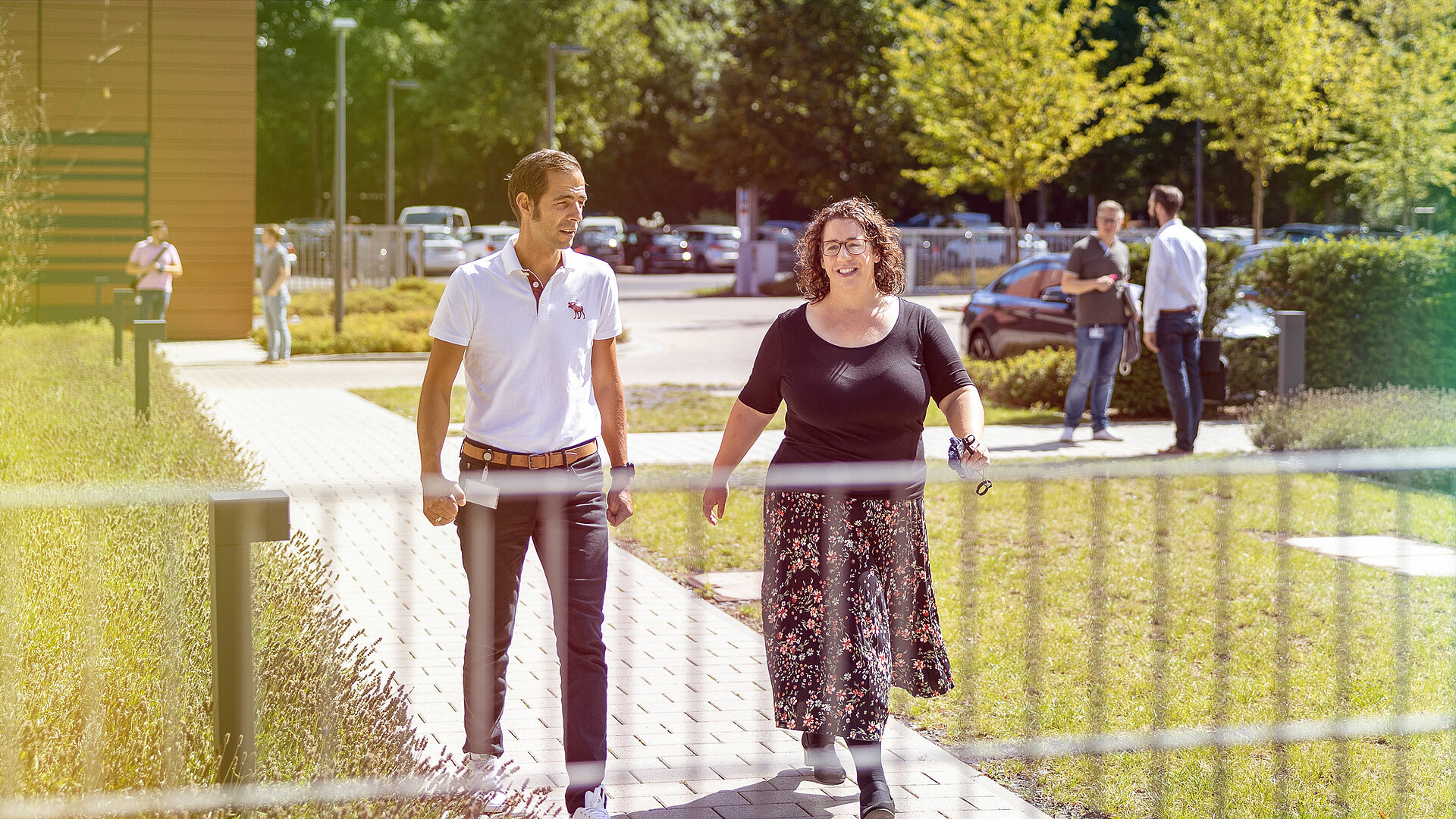
“Processes are the DNA of our business”
Many companies fail when it comes to process documentation. At ALDI DX, it is a strategic element of digital change across all business areas, Jennifer explains.
Jennifer, how did you come to ALDI DX and what do you appreciate about your employer?
Jennifer: I wanted to specialise more in process management and found the right position at ALDI DX in 2017. Since then, I have been working as an Enterprise Architect in the Architecture & Integration team. What I like about my work is the fact that it involves so many different people working together, even internationally, both career starters and experienced colleagues. Because IT is continually growing and modernising, I have the chance to help shape it using modern methods and systems.
What is currently the most important task in your job?
Jennifer: In my job I focus on the selection, implementation and training of process management methods. This includes the development of guidelines for process documentation, administration and the provision of tool and method training for Signavio, the process tool we work with. Currently, my most important task is to familiarise our colleagues with process philosophy, including methods, and to create a positive association with the topics of processes and process management. This also includes empowering users to develop their own ideas and use cases in order to continuously improve our processes and ultimately, of course, to increase customer benefit.
So your dream of focusing on processes has come true. What is your goal for the new process management concept?
Jennifer: Processes are the DNA of our business. Through a central and transparent means of process documentation, we can support objective decision-making for the change and improvement of processes, as well as root cause and impact analyses, should a process no longer achieve the expected performance targets.
Surely not an easy task.
Jennifer: That’s right, such an extensive and networked process repository means a completely new way of thinking and working for ALDI SÜD. For example, responsibilities and coordination processes have to be defined, and this change process is a great challenge, as adjustments have to be made and coordination is necessary again and again. However, we want to evolve from a functionally-oriented to a process-oriented organisation and are actively driving this change forward.
How have you mastered these challenges so far?
Jennifer: Perseverance, patience and a focus on the essentials were important for reaching our previous milestones. We also constantly question our direction and our requirements to ensure that we can react quickly to changes within our business environment.
We are very user-oriented and try to make it as easy as possible for colleagues to use our tools, training and documents. We are happy to advise and support our colleagues in process activities. My training as a transformation coach also helps me with this.
You have also already gotten to know processes in other companies. What differences do you notice at ALDI DX?
Jennifer: In many companies, process documentation is not driven by top management from the outset and often fails. However, through the willingness to transform, ALDI DX has placed the topic as a strategic element from the very beginning and systematically introduced it in all business areas relevant to digital change.
Are there any other areas where ALDI DX is particularly successful in the course of the transformation?
Jennifer: The culture as a whole has changed. Our new culture of first-name basis communication has broken down some of the hierarchical barriers. And relaxing the dress code towards more casual clothing has also contributed to an even more positive environment.
Jennifer, we hope that you continue to feel so comfortable and we wish you all the best!

